- Skip to primary navigation
- Skip to main content
- Skip to footer
The Harvard Committee on Sports and Entertainment Law
Harvard Law School

2023-24 Executive Board
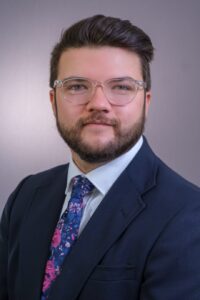
Kellen Dugan
Co-President
Kellen is a third-year law student at Harvard Law School from Cleveland, Ohio. Kellen graduated from Harvard College with a degree in Government and a secondary in Archaeology. Before law school, Kellen was a Research Assistant at a law firm in his hometown during the day and was performing stand-up comedy at night. Kellen spent his 1L summer at the Ohio Justice & Policy Center, a post-conviction non-profit in Cincinnati, and his 2L summer at BakerHostetler in Cleveland. On campus, Kellen helps run HL Football and writes for Parody.
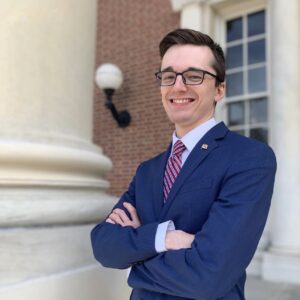
Ben Reichard
Ben grew up in a rural Appalachian community in Western Maryland. After earning a B.A. and M.P.P. from the University of Maryland, he worked in the Maryland state legislature for several years as a chief of staff. Now a second-year law student, Ben is very interested in practicing in the sports industry. He spent his 1L summer at DraftKings on their commercial legal team.
A diehard Washington sports fan, Ben can be found watching 7 hours of commercial-free football every Sunday in the fall on NFL RedZone. When he’s not watching football, he’s either playing or officiating it for the HL Football flag league.
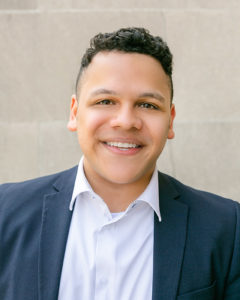
Nicholas Gonzalez
Nick is a third-year law student at Harvard Law school from Brooklyn, NY. Nick graduated summa cum laude and Phi Beta Kappa from the University at Albany, SUNY with a degree in Political Science. Prior to law school, Nick worked in the entertainment industry and appeared as a series regular on the Netflix Original Series, Orange is the New Black, as Emiliano Diaz and appeared in the Oscar-nominated film, Begin Again, as Zach. After graduating in 2019, Nick worked as a corporate paralegal at Cooley and spent the summer before law school at Cleary Gottlieb in New York.
On campus, Nick is a member of the Board of Student Advisers and servers as the Co-President of the Harvard Association for Law and Business and HL Central. During law school, Nick spent his 1L summer at Cooley, interned at BSE Global (Brooklyn Nets/Barclays Center) and spent his 2L summer at Skadden in New York.
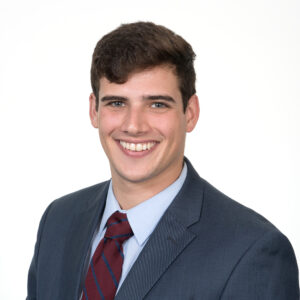
Sam Spurrell
Co-Vice President of Sports Symposium
Sam is a third-year student at Harvard Law School from Cranston, RI. Sam graduated from Amherst College, where he was a member of the Swim and Dive team. While at Amherst, Sam was a two-time Division III NCAA All-American in the 200 yard butterfly. He received a B.A. in Political Science, French, and Psychology. Prior to law school, Sam worked at AlphaSights in New York, NY, where he helped scale new client services. Sam spent his 1L summer at Martin Kenney & Co., a litigation boutique in the British Virgin Islands. This past summer, he worked at Cleary Gottlieb in New York, NY. On campus, in addition to CSEL, Sam is the Treasurer of the Francophone Society and a Teaching Fellow for Professor Peter Carfagna.
In his free time, Sam enjoys playing the NYT Spelling Bee, spending time with his four younger brothers, cheering on Boston sports teams, and spearfishing.
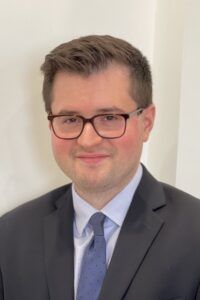
JC is a 2L from Miami, Florida. He graduated from Harvard College in 2019 with a B.A. in Molecular & Cellular Biology. Prior to law school, he was a Senior Analyst at Cornerstone Research and an SEO Law Fellow at Milbank in New York. He spent his 1L summer as a Summer Associate at Cravath, Swaine & Moore. On campus, JC serves on the board of the Harvard Business Law Review and is a proud alum of Section 5.
JC is a lifelong South Florida sports fan, and also follows international fútbol and F1 closely. He enjoys running, cooking, and exploring art museums. In his free time, you can find JC running around Cambridge, discovering new pizza spots, and trying to visit all 30 MLB ballparks!
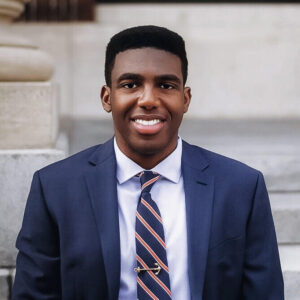
Jason Chukwuma
Vice President of Sponsorships
Jason is a second-year student at Harvard Law School and former media & entertainment professional. Most recently, he worked at Creative Artists Agency (CAA), the world’s largest Hollywood talent agency where he got firsthand exposure to the heart of the media business. Previously, he was a consultant at the Boston Consulting Group (BCG) in New York City. He earned his B.A. in History from Harvard. In his free time, he enjoys watching movies/TV, screenwriting, visiting museums, and attending live music performances.
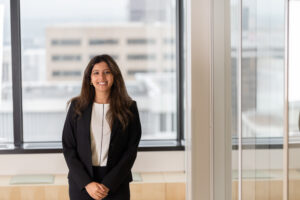
Tanvi Sharan
Vice President of Social, Media, and Alumni
Tanvi is a second-year student at Harvard Law School from Illinois. Tanvi graduated cum laude from the University of Illinois at Urbana Champaign with a degree in Economics and Political Science with a minor in Business. She spent her 1L summer working at Holland & Hart, LLP in Salt Lake City, UT.
In her free time, Tanvi enjoys baking, hiking, and watching movies.
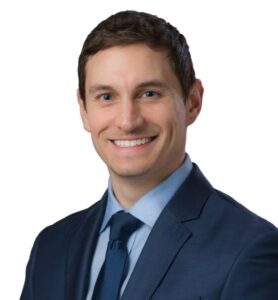
Corey Hester
Vice President of Marketing and 1L Engagement
Corey is a second-year law student at Harvard Law School and a second-year MPA student at the Harvard Kennedy School of Government. He was born and raised in Alaska and graduated from the University of Alaska Anchorage, majoring in Journalism & Communications. Before law school, Corey was the Executive Director and CEO of an aviation company in Alaska and received his MBA from Dartmouth College’s Tuck School of Business.
Corey is an entrepreneur focused on tech in the tourism and hospitality industry and the M&A startup culture. He’s a self-proclaimed top chef and enjoys the outdoors. He’s a former rugby player and an avid San Antonio Spurs fan.
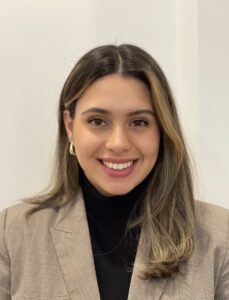
Miranda Murillo
Co-Vice President of Entertainment Symposium
Miranda is a 2L from Miami, Florida. She graduated from NYU in 2019 with a double major in Public Policy and History. Prior to law school, she was a Legal Analyst at Goldman Sachs and an SEO Law Fellow at Sullivan & Cromwell. She spent her 1L summer at Simpson Thacher in New York. On campus, Miranda serves on the board of the Harvard Association for Law & Business and is a proud alum of Section 7.
Miranda is a lifelong Miami Heat fan and a supporter of Real Madrid. She loves reggaeton and, like any decent person from Miami, adores Pitbull. She also enjoys late night talk shows and rom coms. In her free time, you can find Miranda taking ballet classes at the Harvard Dance Center, baking, or exploring the nearest art museum.
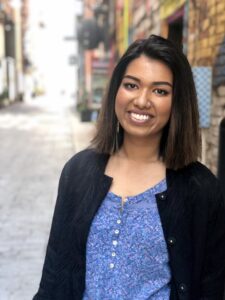
Farha Hanif
Farha is a second-year law student from Michigan. Prior to law school, Farha graduated with a degree in Sociology and Anthropology and shifted gears for a career in tech. She learned how to code and consequently worked as a technology consultant in Detroit for five years. Through law school, she hopes to craft a career in media and entertainment. Ultimately, she wants to enable creators to share their unique voices with the world. Hence, her interest in media and entertainment law. She spent her 1L summer at Apple, working to enable products such as Apple Maps, Books, Podcasts, and News. In law school, she is also involved with the Recording Artists Project.
In her free time, she enjoys baking, hiking, and loves watching hockey. She is an obligatory Detroit Lions fan (however, painful). Her current favorite TV shows include Severance, The Last of Us, The Morning Show, and The Bear.
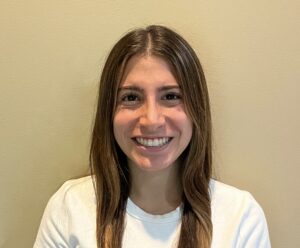
Jordan Janis
Co-Vice President of Sports Programming
Jordan is a second-year law student at Harvard Law School from Potomac, MD. Jordan graduated summa cum laude from Vanderbilt University with a degree in Economics and History and a minor in Spanish. Prior to law school, she worked as a paralegal for three years at the NBA league office in New York. Jordan spent her 1L summer with the legal department at BSE Global, the parent company of the Brooklyn Nets, New York Liberty, Barclays Center, and related entities.
In her free time, Jordan likes to go for runs and watch most professional sports. Her favorite sports teams are the Chicago Cubs, Bulls, Bears, and Blackhawks.
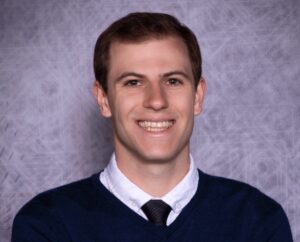
Dylan Russian
Dylan is a second-year law student at Harvard Law School from Everett, WA. Dylan graduated summa cum laude and Phi Beta Kappa from Columbia University (Columbia College) with a degree in Psychology and a Concentration in Classics. Before law school, Dylan worked as a management consultant in Boston Consulting Group’s New York office and as a secondee in Major League Baseball’s Strategy and Development group.
Dylan spent his 1L summer interning in the baseball group of Rep1, a sports agency. On campus, he is also involved with JSEL and RAP. In his free time, Dylan enjoys hiking and backpacking, poker, traveling, and flag football. Dylan is an avid New England Patriots, Seattle Mariners, Miami Heat, and Seattle Kraken fan.
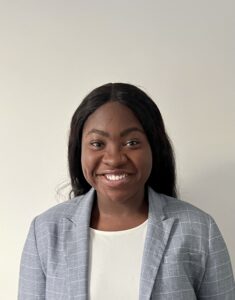
Malika Nicholson
Vice President of Special Projects
Malika is a 2L from Brooklyn NY. She graduated from the University of Massachusetts Amherst in 2020, where she majored in Finance and Sport Management. Prior to law school, Malika has spent time in both fields, serving as a Marketing Intern at Excel Sports and working full time at The Federal Reserve Bank of New York. At HLS, Malika has served as a Student Attorney for the Prison Legal Assistance Project and is on the Alumni Affairs committee for the Black Law Student Association (BLSA). Outside of law school, Malika spends her time boxing, watching documentaries, and browsing home décor.
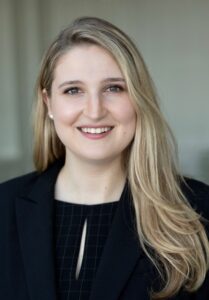
Nina Selipsky
Co-Vice President of Entertainment Programming
Nina is a second-year law student at Harvard Law School from Seattle, WA. She graduated summa cum laude from the University of Pennsylvania in 2020 with a B.A. in Political Science and a minor in French. Prior to law school, Nina worked as a public policy analyst at Amazon in Washington, D.C. She spent her 1L summer at Warner Bros. Discovery in New York City.
On campus, Nina also serves on the boards of the Harvard Association for Law and Business and the Journal of Sports and Entertainment Law. She loves skiing, hiking, and going to concerts and art museums.
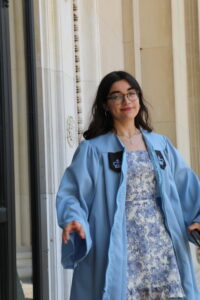
Berra Akcan
Berra is a third-year student at HLS. She graduated from Columbia University and Sciences Po Paris with degrees in classics and political science, from which she graduated summa cum laude and as a member of Phi Beta Kappa. At Harvard, she is interested in art and entertainment law, family law, trusts and estates, and international law. In her second year, she was awarded the Cravath Fellowship to conduct research abroad on legal avenues towards repatriation of objects in the British Museum. She will return to White & Case as an associate after graduation. In her free time, Berra enjoys playing rugby, horseback riding, and reading books.
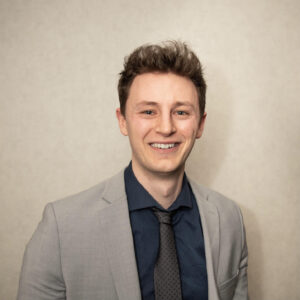
Mike Poirier
Vice President of Operations
Mike is a 2L from Mississauga, Ontario. Mike played basketball at Lakehead University in Thunder Bay, Ontario, where he was the first male athlete in the school’s history to be a 5x Academic All-Canadian. He hasn’t verified the accuracy of that last statement, but he’s about as sure of it as he was during any of his 1L cold calls. Mike graduated as a Dean’s Scholar (which he thinks is something like magna or summa cum laude, but who knows—Canada’s a weird place) with a degree in philosophy and an MBA. Prior to law school, Mike worked as a policy analyst for the Canadian government’s Employment and Social Development division. He spent his 1L summer working for Special Olympics in DC.
Mike is a delusional Raptors fan, a pessimistic Leafs fan, and a fair-weather Jays fan. He hopes to live out his unfulfilled athletic dreams by working for an NBA franchise someday. As VP of Operations, he enjoys operating things and the process of operations.
Pedram Safari
Preceptor of Mathematics
Visiting Scholar/Lecturer
Post-Doctoral Associate & Researcher
Assistant Professor
- Harvard University , Cambridge, MA. Visiting Scholar/Lecturer, 2007–2008; Preceptor, 2008–2016; Research Associate, 2016–2019. Research Associate , 2016-present; Mathematics Preceptor , 2008-present; Visiting Scholar/Lecturer/Post-doctoral Fellow , 2006-present. -->
- Queens College , City University of New York, NY. Substitute Assistant Professor , Spring 2006.
- The Abdus Salam ICTP , Trieste, Italy. Visiting Fellow, 2004–05.
- Visiting Scientist , The Abdus Salam International Centre for Theoretical Physics (ICTP) , Trieste, Italy; March–August 2004.
- Institute for Studies in Theoretical Physics and Mathematics (IPM) , Tehran, Iran. Post-doctoral --> Post-doctoral Research Fellow , Fall 2001–Summer 2004.
- Sharif University of Technology , Tehran, Iran. Assistant Professor , 2000–2001.
- Columbia University , New York. Departmental Representative , Summers of 1999 and 2000; Preceptor, 1999–2000.
- Faculty Fellowship ( as graduate student ), Columbia University, 1994-1998.
- Ph.D. in Mathematics , May 2000.
- Dissertation: A gluing theorem for Seiberg-Witten moduli spaces.
- Advisor: John Willard Morgan .
- Dissertation Committee: Masatake Kuranishi , Brian Mangum , John W. Morgan (advisor), Tomasz S. Mrowka , Duong H. Phong (chair).
- M.Phil. in Mathematics, February 1998.
- M.A. in Mathematics, 1995.
- M.A. in Mathematics , 1995.
- Sharif University of Technology , Tehran, Iran; B.S. in Mathematics, summa cum laude , June 1993.
- Dehkhoda High-School, Karaj, Iran; High-School Diploma in Math-Physics, 1988.
- Vahdat and Jahan Schools, Karaj, Iran; Elementary and Intermediate periods, 1976-1984.
Interests. Geometry and topology in low dimensions, gauge theory, dynamical systems, interdisciplinary applications of mathematics in other fields
- “ Future Exchange Rates and Siegel's Paradox ”, with Keivan Mallahi-Karai, Global Finance Journal , vol. 37 (Aug. 2018), 168-172 . arXiv:1805.03347 [q-fin.MF], ssrn:2892161 , doi: 10.1016/j.gfj.2018.04.007 .
- “ Siegel's paradox: a mathematical point of view ”, joint with Keivan Mallahi-Karai. (under review)
- “ Spatial remapping without gain fields: a neural model based on cortico-thalamic connectivity ”, joint poster with Baktash Babadi, Nan Jia and Arash Yazdanbakhsh at the 36th European Conference on Visual Perception , August 27, 2013, Bremen, Germany.
- “ Gluing Seiberg-Witten Monopoles ”, arXiv:math.DG/0311329 , --> Comm. An. Geom, vol. 13, no. 4 (Oct. 2005), 697-725. Comm. An. Geom, vol. 13, no. 4 (Oct. 2005), 697-725. --> arXiv:math/0311329 [math.DG], doi: 10.4310/CAG.2005.v13.n4.a3 .
- “ e-Publishing ” (in Persian), Nashr-e Riyazi 26 , vol. 14, no. 1 (2003), 17-34.
- “ What is Seiberg-Witten theory? ” (expository article in Persian), Nashr-e Riyazi 23 , vol. 12, no. 1-2 (2001), 4-11.
- “ A gluing theorem for Seiberg-Witten moduli spaces ”, Ph.D. dissertation, Columbia University, 2000. postscript and PDF formats. -->
- " Seiberg-Witten Equations with Multiple Spinors " , Algebra/Topology Seminar , Department of Mathematics , SUNY at Albany, NY ; August 28, 2014.
- " Spatial remapping without gain fields: a neural model based on cortico-thalamic connectivity ", joint poster with Baktash Babadi, Nan Jia and Arash Yazdanbakhsh at the 36th European Conference on Visual Perception , August 27, 2013, Bremen, Germany.
- " Seiberg-Witten monopoles and 4-manifold surgery " , Algebraic Geometry Seminar, Department of Mathematics , Cal Tech , Pasadena, CA; May 5, 2008.
- " Gluing Monopoles " , Differential Geometry and Geometric Analysis Seminar, Department of Mathematics , Princeton University , Princeton, NJ; December 7, 2007.
- " Gluing Seiberg-Witten Monopoles: an outline " , Gauge Theory and Topology Seminar, Department of Mathematics , Harvard University , Cambridge, MA; March 23, 2007.
- " Gluing Seiberg-Witten Monopoles " , Fakultät für Mathematik , Universität Bielefeld , Bielefeld, Germany; November 18, 2005. Invited.
- " A Mayer-Vietoris Theorem for Seiberg-Witten Moduli Spaces " (invited), 2nd Iranian Geometry-Topology Conference , Amir-Kabir University , Tehran, Iran; February ??, 2002.
- " Gluing Seiberg-Witten Monopoles: a mathematical approach " , the Abdus Salam ICTP , , --> Trieste, Italy; March 31, 2004.
- " Gluing of Solutions of Seiberg-Witten Equations " , Laboratoire de Math?atiques , Universit?Paris-Sud , Orsay, France; January 16, 2003.
- " Gluing of Solutions of Seiberg-Witten Equations " , Second Russian-German Geometry Meeting , Steklov Institute of Mathematics, Saint-Petersburg , Russia; June 17, 2002.
- Speaker in the Second Russian-German Geometry Meeting , Steklov Institute of Mathematics, Saint-Petersburg, Russia. June 16-23, 2002.
- Speaker in the "Mathematics Analysis and its Applications" seminar, Institute for studies in theoretical Physics and Mathematics (IPM), Tehran, Iran. May 15, 2002. Title of talk: “ Decay of Solutions of Seiberg-Witten Equations ”.
- Speaker in the "Mathematics Analysis and its Applications" seminar, Institute for studies in theoretical Physics and Mathematics (IPM), Tehran, Iran. June 13, 2001. Title of talk: “ Seiberg-Witten invariants of four-manifolds split along a three-manifold ”.
- Speaker at Tarbiat Modarres University, Tehran, Iran. June 18, 2001. Title of talk: “ Seiberg-Witten Moduli Spaces ”.
- Speaker at the mathematics department colloquium, Sharif University of Technology, Tehran, Iran. November 5, 2000. Title of talk: “ Seiberg-Witten Moduli Spaces ”.
- Speaker in a series of seminars at the Institute for studies in theoretical Physics and Mathematics (IPM), Tehran, Iran. November 1, 4 and 16, 2000. Title of talks: “ Seiberg-Witten Equations in Geometry ”, “ Seiberg-Witten Invariants of Four-Manifolds ”.
- Speaker at the Institute for Advanced Studies in Basic Sciences (IASBS), Zanjan, Iran. Oct. 31, 2000.Title of talk: “ Seiberg-Witten Invariants of Four-Manifolds ”.
- " Floer Homology and Novikov Rings " , Columbia Gauge Theory Seminar, June 1997.
- " Complex Analysis: The Geometric Viewpoint " , Sharif University of Technology, Tehran, Iran, 1993. This was a series of lectures (jointly with Saeed Zakeri), following a book by S. Krantz of the same title.
- " Perturbations of Hamiltonian Systems and Abelian Integrals " , Dynamical Systems Seminar, Sharif University of Technology, 1992.
- " Linear Flows in the Complex Domain " , weekly colloquium, Sharif University of Technology, 1991.
- " " ,
- Speaker at Columbia Gauge Theory Seminar. June 1997. Title of talk: " Floer Homology and Novikov Rings ".
- Speaker (jointly with Saeed Zakeri) at Sharif University of Technology, Tehran, Iran. 1993. Title of talks: " Complex Analysis: The Geometric Viewpoint ". This series of lectures were aimed to follow a book by S. Kranz of the same title.
- Speaker at the Seminar on Dynamical Systems, Sharif University of Technology, Tehran, Iran. 1992. Title of talk: " Perturbations of Hamiltonian Systems and Abelian Integrals ".
- Speaker at the weekly colloquium, Sharif University of Technology, 1991. Title of talk: " Linear Flows in the Complex Domain ".
- Second Russian-German Geometry Meeting , June 16-23, 2002. Steklov Institute of Mathematics, Saint-Petersburg, Russia.
- Mathematical Challenges of the twenty-first century , August 7-12, 2000. University of California, Los Angeles. On an NSF travel grant.
- A Fiftieth anniversary of the C.L.E. Moore Postdoctoral Instructorship in Mathematics , October 9-11, 1999. MIT, Cambridge, MA.
- Conference on Geometry and Topology , May 14- 16, 1999. Harvard University, Cambridge, MA. Sponsored by the Journal of Differential Geometry in honor of Atiyah, Bott, Hirzebruch and Singer.
- Marston Morse Conference on Gauge Theory and Symplectic Geometry , March 29, 30 and April 1, 1999. Institute for Advanced Study (IAS) , Princeton, NJ. Conference organizers: Robert MacPherson, IAS; Peter Ozsv?h and Zolt? Szab? Princeton University.
- Current Developments in Mathematics, November 1998. American Academy of Arts and Sciences , Cambridge, MA.
- Geometry Festival (in honor of James Simons), March 1998. SUNY at Stony Brook , NY.
- Prospects in Mathematics ( the 250th anniversary of Princeton University ), March 1996. Princeton University , Princeton, NJ.
- Conference on Seiberg-Witten invariants, January 1995, Princeton University , Princeton, NJ.
- Visiting the International Center for Theoretical Physics (ICTP) , Trieste, Italy. June and July 1994.
- School on Dynamical Systems, May 25-June 5, 1992. ICTP , Trieste, Italy.
- Workshop on Dynamical Systems, March 2-5, 1992. IPM, Tehran, Iran.
Courses Range from elementary college courses as Pre-Calculus, College Algebra and Trigonometry, Linear Algebra, Calculus sequence, Introduction to Modern Analysis , and Elementary Differential Topology , to more advanced gradaute courses as Geometry of Manifolds II, Topics in the Geometry of Manifolds and Introduction to Seiberg-Witten theory ... . I have also developed (and am developing) courses for graduate students in social sciences to provide them with the necessary intuition and skills in using mathematics.
Course Assistance. %%-- Teaching Assistant. --%% These involved 2–3 hours weekly recitations to review the material and discuss problems using the computer algebra system Mathematica , in addition to holding office hours, review sessions and grading. I have assisted Calculus I–IV, Basic Topology, Honors Math, Modern Analysis and Modern Algebra . --> Mathematica as well as the blackboard. Other responsibilities include holding office hours, holding review sessions and grading. I have assisted Calculus I-IV, Basic Topology, Honors Math, Modern Analysis and Modern Algebra.
Honors Harvard University Certificate of Teaching Excellence , awarded by the Derek Bok Center for Teaching and Learning , Fall 2014.
Professional
- Visitor at Laboratoire de Math?atiques , Universit?Paris-Sud , Orsay, France; January 10-24, 2003.
- Co-editor of Shahyad , a festschrift in honor of S. Shahshahani's 60th birthday, May 31, 2002.
- Visiting Fellow at the Abdus Salam ICTP , Trieste, Italy; 2004-05.
- Postdoctoral Research Fellow at IPM , Tehran, Fall 2001-Spring 2004.
- Departmental Representative, Columbia University , New York. Summers of 1999 and 2000.
- IPM Research Grant, Tehran, Spring 2001.
- IPM Resident Researcher and Research Grant, Tehran, 2000.
- Assistant Professor, Sharif University of Technology , Tehran, Iran. 2000-2001.
- Preceptor, Columbia University, 1999-2000.
- Faculty Fellowship, Columbia University, 1994-1998.
- Ranked among the top four in several undergraduate mathematical contests (details available).
- Member of the Dynamical Systems Research Group , Institute for Studies in Theoretical Physics and Mathematics (IPM), Tehran, Iran, 1992-94.
- Well acquainted with Mac-OS, UNIX and Windows -->
- Proficiency in LaTeX, Mathematica , MS Word, Excel, Emacs and Xfig.
- Working knowledge of LaTeX, MS Word, Excel, Emacs, Xfig and Mathematica .
- Familiarity with various Adobe and Macromedia softwares or iOS applications.
- Rudiments of algorithmic and object-oriented programming.
Persian (native), English (fluent), French (good; DELF : A2), Italian (fair), Arabic (good in reading), German (fair in reading), HTML (good), Java (fair).
- Clifford Taubes , William Petschek Professor of Mathematics, Harvard University
- Cumrun Vafa , Donner Professor of Science, Department of Physics, Harvard University
- John Willett , Charles William Eliot Research Professor of Education, Harvard University (teaching)
- Gary King , Director, Institute for Quantitative Social Science and Albert J Weatherhead III University Professor, Department of Government, Harvard University (teaching & professional)
- Nader Engheta , H. Nedwill Ramsey Professor, School of Engineering and Applied Science, University of Pennsylvania
- John Morgan , --> Professor Emeritus of Mathematics, Columbia University ; Member and Chair Of Section 11, National Academy Of Sciences ; --> ; currently --> Director Emeritus, --> Founding Director, Simons Center for Geometry and Physics, Stony Brook University
- John Morgan , Columbia University
- Ramadas Ramakrishnan , Professor of Mathematics and Head, Mathematics Group, The Abdus Salam ICTP, Trieste, Italy
- Patrick Gallagher , Professor of Mathematics, Columbia University (teaching)
- Siavash Shahshahani , --> Professor Emeritus of Mathematics, Sharif University and Founding Fellow of IPM, Tehran, Iran

Harvard Law School Recording Artists Project
Pro bono legal assistance in the music industry.

Student Practice Organization @ Harvard Law School
Recording artists project, is your work protected, safeguard your music and artist name for protection from creative theft., want better terms, have us negotiate on your behalf to get a better deal., signing with a label creating a band, drafting and review; band agreements and record deals., contact us for spring 2023.
Are you a musician looking for legal assistance? Recording Artists Project will help you take your music to the next level. Get in touch today.
Your details were sent successfully!
Executive Board
Co-presidents, project oversight director, client intake director, events director , communications director, sponsorships director, membership director, supervising attorneys, clinical instructor director, entertainment law clinic and rap, brian price, clinical professor of law rap faculty advisor and founding faculty member director, transactional law clinics, some of rap's clients.
Esperanza Spalding
The Brazen Youth
Avanti Nagral

How Harvard Deep-Sixed Its Russian Scandal
I’m always interested to see a new book on the transition of the Russian economy from central planning to the oil-based siloviki-dominated oligarchy of today. No Precedent, No Plan , by Martin Gilman, stakes a claim to being the definitive word on some of those events. The impact of the crash of August 1998 needs to be appreciated in order to understand contemporary Russia, he says. The English edition is a slimmed-down version of a longer Russian book.
Gilman should know. He was named a senior member of the International Monetary Fund’s Russia team in 1993, just after the Clinton administration took office. He moved to Moscow in November 1996 and remained until 2002. Along the way he married a prominent Russian political columnist, Tatiana Malkina, gaining thereby unusual access to the Russian government at its highest levels, and, as well, “a special insight into the way that Russians really see their world.”
Today he is a professor at Moscow’s State University’s Higher School of Economics. And it is from this vantage point that Gillman seeks to set straight various “dangerous stereotypes” and to put to rest a lingering “suspicion of corruption that accompanied the discussion of Russian financial matters” in the second half of the 1990s.
No Precedent, No Plan ascribes the various scandals of 1999 to fabrications designed to discredit opponents, a familiar enough tactic in Russian political campaigns. So it is strange that the book contains no mention of the well-documented Moscow scandal that set the scene for various perceptions that followed the IMF-supervised restructuring of Russia’s external debt in August 1998.
It was in 1997 that the US Agency for International Development fired the Harvard University team that it had assigned four years before to advise the government of Boris Yeltsin. Evidence had surfaced that the team leader, Harvard professor Andrei Shleifer, his wife, his deputy and the deputy’s girlfriend, had, in the office of their Russians advisees, muscled aside legitimate firms in order to obtain for themselves the first license to distribute mutual fund shares in a vast impending privatization.
Shleifer’s good friend and mentor, Harvard economist Lawrence Summers, who as a member of the department had been involved in assembling the team in the first place, remained at the Treasury Department, where, as deputy secretary, he oversaw the US response to the Russian crisis in 1998. In 1999 he became Treasury Secretary himself, replacing Robert Rubin. In 2000, the US government sued Harvard and the others for fraud and, after the matter was extensively litigated, recovered its fee. Summers, meanwhile, was named Harvard’s president and, not long after, recruited Rubin to Harvard’s seven-member governing Corporation. Five years later, Summers’ handling of the Russia project over the years was deemed by The New York Times to have been a significant factor in his dismissal.
When Summers returned to Washington in 2009 as chief economic adviser to President Barack Obama, Shleifer’s wife, hedge fund operator Nancy Zimmerman, was noted by the Times to be among his inner circle of informal advisers, along with Laurence Fink, chief executive of BlackRock, the large money management firm, and H. Rodgin Cohen, chairman of the Sullivan and Cromwell law firm, and several others. .
Yet not even Shleifer’s name makes the cut in No Precedent, No Plan when Gilman writes, “The World Bank Staff members and those of other international agencies, some western think tank and academic advisers such as [Anders] Aslund, [Richard] Layard and [Jeffrey] Sachs, and the G-7 financial attaches based in Moscow also had privileged access, but none were able to have such a comprehensive overview of the macroeconomic situation on a continuing basis as the IMF.”
So when Gilman recently spoke at Harvard’s Russian Research Center about his book, I stopped by to hear him. Towards the end of his talk, I asked about the Harvard project, and he gave what seemed to me a genuinely forthcoming answer.
“I’m going to say something very politically incorrect. I think it was a tempest in a teapot, a teacup. I thought the whole things overblown and exploited. I’m not saying that there weren’t elements of poor judgment involved. I think that in terms of foreign technical assistance to the Russians, I think they actually made a valuable contribution, compared to some other institutions that were involved there. I think it was a sad outcome, sloppy, as I say, poor judgment, but I just don’t think it should have been exaggerated the way it was. There were a lot of enemies out there…. I don’t really know enough about the details and I don’t like to get involved in that kind of stuff.” “The collapse of the Harvard mission, amid widespread publicity in Russia, caused no discomfiture to the IMF?” “No. No. Because if every time there was some impropriety, or accusation – we’re not judges – if every time there was an impropriety, we could have never done anything. You raise a good point, because later, we were not able to overlook improprieties, not in 1997 or ’98, but when scandals that I mention [in the book] started… then minor charges of these kinds… the IMF could [no longer] ignore.”
But, in fact, I noted, the Harvard charges were not minor. They had been brought, not by Russian disinformation specialists, but by American whistleblowers. Harvard’s Institute for International Development itself had fired its team leaders, and the US Agency for International Development in turn had fired HIID, for inadequate supervision.
The case had been investigated extensively and tried in US District Court in Boston. Harvard and Shleifer’s defense had been curtly rejected by both a judge and a jury. Both were found to have committed fraud. The dismal end of “the so-called Harvard Boys,” as Gilman described them in passing in his book, was, in other words, a proven case.
So why wasn’t the episode worth mentioning in the book? In conversation after the talk, Gilman at first thought he must have included it. Then, he speculated, perhaps it had been left on the cutting-room floor when the Russian original was translated into English. He promised to look to see what he had said. But he didn’t reply to an email.
Alas, No Precedent, No Plan is another book about Russia in the ’90s to enter the world with an asterisk firmly affixed – the typographical device that in sports history indicates a record tainted by circumstances. It could be, I suppose, that Gilman has accurately reflected what a broad swathe of Russian public opinion thinks about US-led interventions in those years, but I doubt it. Certainly he doesn’t know much about the deeper currents of American opinion.
On the other hand, at so late a date the omission is not really very much Gilman’s fault. Harvard’s strategy, to deny everything almost from the beginning, has for the most part succeeded in the dozen years since then, for the story has not become a well-established social fact. Sachs left Harvard for Columbia. The Harvard Institute for International Development, which he headed, was disbanded instead of beefed up. And when the case was finally lost, after eight years of wrangling, the university administered a wrist-slap to Shleifer and sealed its faculty committee’s investigation of his conduct. Summers has remained aloof from the case for the most part, at least in the world outside Cambridge.
Harvard may have behaved badly by stonewalling, but major newspapers and magazines performed even worse – with the honorable exception of The Wall Street Journal, where reporters Steve Liesman and Carla Anne Robbins broke the story in 1997 (and Robbins updated it in 2004); and of Institutional Investor, where investigative reporter David McClintick wrote the saga to a broad conclusion in January 2006.
Three veteran Moscow bureau chiefs published accounts of the roaring ’90s in Russia without mentioning the Harvard embarrassment – David Hoffman, formerly of The Washington Post (now writing for Foreign Policy), Chrystia Freeland, formerly of the Financial Times (now writing for Reuters), and Strobe Talbott, formerly of Time magazine. All three wrote before the trial firmly established the facts of the matter, but none bothered to keep readers up to date. Talbott, who served seven years as deputy secretary of state in the ’90s, published The Russia Hand: A Memoir of Presidential Diplomacy (with Michael Beschloss) after becoming president of the Brookings Institution.
The brazening-out of the Harvard scandal might not have succeeded so nearly completely if ordinary checks and balances of competition in the news business had obtained, but by the early ’00s newspapers had begun their barely-controlled financial descent. I should mention, however, the most surprising disappointment. David Remnick, himself a former Washington Post Moscow bureau chief, author of two books about the Russian transition, failed as editor of The New Yorker to assign a story, though, in John Cassidy, he had one of the liveliest financial reporters in the business.
Why were so many blind eyes turned to such an interesting and important story? My guess is a combination of access-hunger on the part of the reporters and institutional loyalties of various sorts among the bureaucrats. The authorities who framed the initial Harvard response presumably consulted with Deputy Treasury Secretary Summers, carefully, via back channels. Nor did the economics profession respond by reining in Shleifer’s position of power in any way. He edited the influential Journal of Economic Perspectives for five years, throughout the period of his greatest embarrassment.
What hope that the story will eventually get a proper airing? McClintick, one of the most gifted investigative reporters of his generation (Swordfish, Indecent Exposure and Stealing from the Rich), seems to have given up on it, after marrying his best source, Andrea Rutherford, secretary for many years to Dimitri Vasiliev, head of the Russian Securities and Exchange Commission.
USAID, a semi-independent arm of the State Department, is preparing a history of its last twenty years. Perhaps its historians will tackle the subject. USAID personnel know the inside story; and, practically without exception, its officers behaved well.
There is even a chance that the Harvard faculty will demand the release of the report of its Committee on Professional Responsibility. The late Jeremy Knowles, dean of the Faculty of Arts and Sciences, decreed that it remain secret not long before he died.
Inside Job won its Oscar last Sunday for best documentary. Sure, I have plenty of reservations about Charles Ferguson’s film. The Wall Street madam who insists that Everybody Did It is scarcely credible; she seems there mainly to exculpate star witness Eliot Spitzer. His narrators (Nouriel Roubini, Raghuram Rajan, Gillian Tett) tell no coherent story except “greed” (Ferguson was trained as a political scientist, not an economist, at the Massachusetts Institute of Technology.)
Yet thanks to the sheer rhetorical force of his film, many research universities are rethinking their conflict of interest and disclosure policies. Even the American Economic Association has formed a committee to consider whether it has responsibilities in the matter. Ferguson deserves that Oscar.
Those committees, in their deliberations, would do well to consider the Harvard matter, too. Yes, it was in a foreign country, and besides the wench is dead. But the subtle suborning of the scholarship of the community of students of the American involvement in the Russian transition, and of the journalists who cover them, by the little foursome that was chosen to represent the government of the United States to the government and the citizens of Russia, was, to my mind, a more serious matter than any single thing that has yet surface on Wall Street. Martin Gilman deserves his asterisk – and so do all the rest named here, including, especially, Harvard University.
DAVID WARSH covered economics for The Boston Globe for 22 years and, earlier, reported on business for The Wall Street Journal and Forbes. He publishes Economic Principals.com , an independent weekly commentary on the production and distribution of economic ideas, where this article first appeared. He can be reached at [email protected]
CounterPunch+
- Misogyny and the Attacks on Bodily Autonomy
- Prabowo Subianto, Cuddly Mass Murderer
- Israel’s Willing Executioners
- Israel’s Long War Against the Press in Gaza
- Feedback Dope
I have been endorsed by lots of folks including Steve Pinker who has been excellent identifying a path forward for the university ("a forum not a protagonist!")... and my campaign has been covered since December in the Crimson , CNN , the Boston Herald -- For more of who I am you can see my Perspectives on Harvard Conversations
If you are a Harvard Alum and want to see change, please nominate me here for the Board of Overseers Ballot
Public Endorsements. If you are willing to add a note please add it here
"Sam is exactly what Harvard needs right now. As a Harvard alum (Harvard College '07) who wants to be proud of our great institution again, I strongly urge you to put Sam on the Board of Overseers." Jared Friedman, Managing Director at Y Combinator
"Sam is exceptionally intelligent and experienced building businesses in rapidly changing environments. I believe this applies to the kind of grounded rethinking that would suit Harvard." Mario Schlosser, HBS MBA 2007, Co-founder & President Oscar Health
"Sam Lessin will bring in new ideas and pespectives as a member of the Board of Overseers. With experience as a hi-tech entrepreneur and a critical eye, Lessin will facilitate the formulation of better and sounder university policies." Dr. Laura Wharton '83 Jerusalem City Councilor
“The Harvard I know and love is one of intellectual bravery and integrity. Having gone to college with him, I can attest that Sam knows that Harvard too, and I’m confident he can restore the University’s leadership role in this time of disinformation, distrust and division.” California State Senator Henry Stern
"Sam Lessin is an experienced entrepreneur, investor, and product manager who loves Harvard and is passionate about restoring Harvard from its recent lack of leadership. He wants to work from within to make the changes necessary." Alfred Lin, '94 Quincy House / Sequoia Capital
"Sam Lessin brings a unique blend of intelligence, passion, and a strong commitment to Harvard's future. His fresh perspective and unwavering dedication make him an ideal choice for the Board of Overseers." Josh Kushner, College '08, HBS '11
"The problems at Harvard are obvious and require nothing more than common sense and a bit of courage to tackle. Sam has both in abundance and will be a valuable and necessary voice to help save the institution from itself." Adam Enbar, ‘10 Founder, Flatiron School
"Sam is an out of the box thinker who is always up for sharing a fresh perspective." Faryl Ury, Dunster ‘06
"We need someone with the experience and perspective Sam represents so well." Esther Dyson '71/72, Harvard Crimson 1967-72
"Sam is invested in the future of the college, has a vision, and wants to ensure that the firestorm that embroiled the campus in the fall of 2023 does not happen again." Adam Butensky, '13
"Good governance requires diverse perspectives, creative problem solving and respectful interactions. As an investor, Facebook colleague and commentator, Sam has demonstrated that he can advance new ideas, create consensus and deliver results. He would be an excellent addition to the Board of Overseers and ensure that its membership is truly drawn from across Harvard's alumni community." Elliot Schrage, '81 (College), '86 (HLS), '86 (HKS), HLS Visiting Committee, Information Technology Visiting Committee and Visiting Committee
"Sam truly is a visionary thinker, as anyone who knows him could say even without seeing the many successes of his career. At the same time, he is always well-informed, thoughtful, and willing to consider the many sides of any issues. I think he would be a fantastic addition to the Board of Overseers and a much needed voice." Michael George '05, Kirkland House
"Sam's dedication impresses me, and he makes sense suggesting support for Harvard in helping it correct its course. I signed on to his nomination right away and hope you do too." Wendy P. White MA '72 Fine Arts
"I have faith that Sam will provide an impulse for change--with a strong degree of moral clarity--that Harvard so acutely needs." Jason Bergsman, '08 HBS
"Sam feels like the best possible option. He's not political, and is trying to focus on Harvard's academics." Tali Rapaport '05
"Sam represents a fresh perspective that is much needed on the board of overseers. His views very much align with my own, and given his strong track record, and love of the school, he will be able to institute some lasting change." Ryan Goodman, ‘09 HBS
"We need a trailblazing outsider like Sam who can bring fresh perspectives to Harvard and a total lack of fear about upsetting 'sacred cows' in the process. The current governance of Harvard is too insular and as a result too afraid to upset the status quo. We need a renegade. We need Sam!" Ethan Kurzweil, HBS '08, Partner, Bessemer Venture Partners
"Sam is a very clear, insightful thinker. He both gets to the bottom of a topic he's analyzing while often offering a perspective that may not be obvious" Alec Ellison, HBS '88
"I fully support the nomination of Sam Lessin to provide leadership and vision to enrich the university’s future" Alissa Brotman O’Neill ‘97 Chair of Surgery Rowan-Virtua SOM
"Any organization would be lucky to have Sam on its governance board. He brings unconventional perspective and uncommon insight to virtually everything he pursues; he's the rare difference-maker Harvard absolutely needs at a critical moment like this." David Hammer, '06 Winthrop House
"I support Sam Lessin for the Board of Overseers and specifically seek the following reforms for Harvard: Harvard must reduce or eliminate the power of its DEI bureaucracy to regulate speech, to influence course content in any way, and to punish dissenting ideas on the dubious grounds of the "harm" they supposedly do to one or another arbitrarily designated "marginalized" groups. It must also work to reverse the perverse grade inflation that renders a Harvard degree meaningless in an intellectual sense. It must embrace a strict merit-only standard for admissions and hiring and accept with gusto the Supreme Court's affirmative action rulings. It must impose strict protections for freedom of expression conducted in a civil manner. Yet it must also impose zero tolerance and draconian punishments for any and all disruptive actions by protesting students, such as shouting down speakers, occupying buildings, interrupting classes, or targeting specific students or groups of students with harassment via social media or in other more direct ways." Jonathan Burack, '64 Adams House
"Excited to support Sam Lessin for Harvard’s Board of Overseers. In the last 20 years, I've had the chance to collaborate with him on everything from class projects as undergrads to company-building as entrepreneurs & investors. Sam brings fresh thinking; an open mind; and a high bar for excellence to everything he does. He's never been afraid to have hard conversations -just what Harvard needs." Spencer Lazar, ‘07 Kirkland House
"Thank you for standing up and putting yourself forward to effect greatly needed change. The moral clarity that Harvard should possess has been lacking, and candidates like these offer hope that the institution can be the beacon that it must be." Aaron Grand, '18
"Sam. Thanks for working to bring common sense back to Harvard. I genuinely do not recognize Harvard as the place I studied! The University needs to return its focus to academic-excellence rather than the foment of culture wars and anti-establishmentarianism." Jon Sandler ‘86/‘91
"Concerned about absence of moral compass and ethical framework around academic goals" Julian Henley MD FACS '69 Founder Biotech Company
"Sam is a truly independent thinker with a deep desire to help Harvard march forward. I trust him to not let himself get influenced by external forces and focus on what Harvard really needs to remain an academic example in the years to come." Philippe Noël, '20 Leverett House, Co-founder & CEO @ ParadeDB
"Harvard would be incredibly fortunate to have the benefit of Sam's thoughtfulness, integrity, passion and aptitude on its Board of Overseers." Roy Ben-Dor, '11 JD/MBA
"Sam is deeply thoughtful about many things — especially where Harvard is concerned. He pulls no punches and calls things like he sees them, which is unusual and refreshing in a world where so many are afraid to speak their minds. I believe his take on how to make the university a better place for all its stakeholders — including alumni — is exactly what we need to move the university in the right direction during a divisive and complicated time." Steve Lavine, '91 Cabot House
"We need new voices on the Board of Overseers and Sam Lessin’s should be one of them. I respect his integrity, experience, knowledge and ability to lead by considering and incorporating the expertise and views of many. Please see what Sam has to offer, his important platform, and support him." Lynn E. Taylor, A.B. ‘88
"I fully support Sam's candidacy." Kristin Meyer, '03 Adams House
"Sam Lessin represents my generation's sensibilities about refocusing the mission of Harvard to pursue excellence." James Currier, HBS '99, NFX Capital
"I've worked with Sam from the year he left Harvard. He's always gone to first principles to create a balanced atmosphere for debate that consistently leads to progress that refers back to higher objectives. Harvard needs just exactly this at this time." Anil Shrivastava, AB'90, MBA'96
"Harvard is going through a difficult period right now. I have every confidence Sam will make the right calls to help the school." Richard Lichtenstein, '04 Adams House
"The last few weeks show that the way Harvard has been operating is costing it its reputation and trust in the wider world. While it has taken decades to get here, voting for change now will be a necessary in first step in attempting to recover that reputation. It's a long recovery, but beginning now is of paramount importance." Russell Rivera '99-'00 Mather House
"Sam’s goals are as timeless as they are thoughtful. Education is the kindling of a flame, not the filling of a vessel." Griffin Schroeder, ‘05 Kirkland House
"Harvard has become a place where freedom of speech and inquiry is discouraged. Sam sees this as a problem and wants to fix it." David Kurlander, ‘85 Lowell House
"It's been shocking to observe so many shining institutions I valued growing up as a first-generation American lose their way. It speaks to horrendous leadership, a lack of moral clarity, and putting tribal progressive politics above the pursuit of the truth. Sam's understanding of what Harvard's board should be and courage to fight for this important societal symbol is what we need." Peter Vu, '13 HBS
"Harvard needs someone like Sam who will fight to regain our position as an institution of academic excellence and protect free speech. We cannot take democracy and intellectual freedom for granted; it must be protected vociferously." Margaret M. Yellott, '07 Leverett house
"A vote for Sam is a vote for sanity and competence." John Durant, '05 Wild Ventures
"I think Sam Lessin would be a most welcome addition to the Board of Overseers." Bracha Goetz (Vicki Druss '77), Author of 42 children's books
"I am confident that Sam will drive the positive change that Harvard desperately needs right now. He's smart, broad-thinking, and passionate about Harvard." Rick Marini, HBS '99, Entrepreneur & Investor
"Harvard, like many other revered institutions, needs an infusion of fresh new blood to challenge the status quo and reach a new peak on the foundation that was built over generations, and Sam is the ideal person to take that mantle. He's self-made, and cannot be bought, and his experience shows his ability to build things from fresh, and then apply them into larger and established institutions. He's stepped into the latest in tech and science, but is a humanitarian first and foremost, and acts for the greater good. He is the right person to help steer Harvard to a new summit of academic excellence." Moran Bar-Kochva, Founder & Managing Partner Unison Capital [HBS Alum]
"Sam is an accomplished entrepreneur, investor, and thinker. He would bring a pragmatic perspective to the Board and a dedication to helping Harvard thrive in a rapidly changing world." Brian Feinstein '07
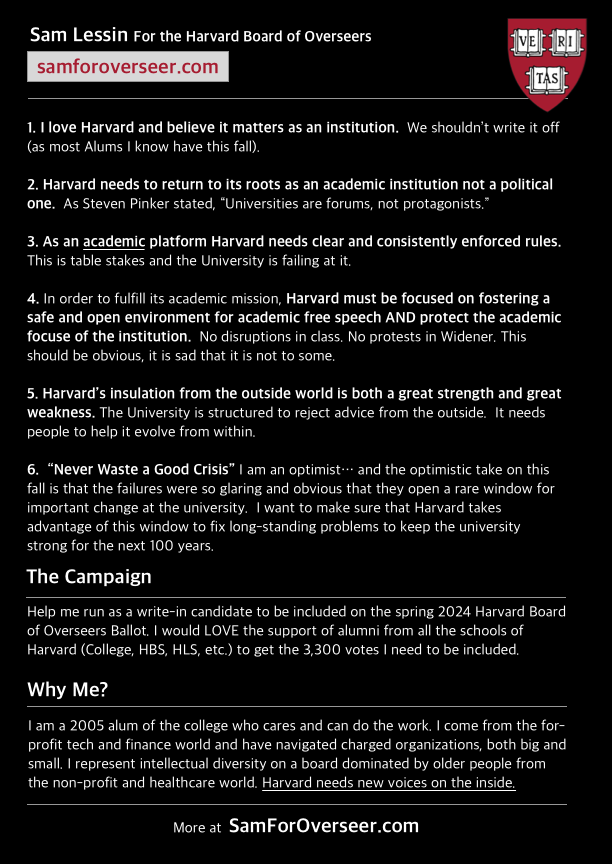

Sami Safar Murder: Karl Waldon, James Swift Jr, Aric Sinclair, and James Battle Today
The severity of a crime is heightened when those entrusted with the duty to protect the public become implicated in wrongdoing. Such cases add layers of complexity to investigations, as the very individuals responsible for solving crimes can find themselves entangled in the web of criminality. A notable example is the murder of Sami Safar, a Jacksonville resident and business owner. ‘Good Cop, Bad Cop: Blind Spot’ meticulously looks into the intricacies of the case, scrutinizing which law enforcement officers were involved in his murder, exploring their motivations, and determining whether they faced justice for their actions.
What Happened to Sami Safar?
In the late 1990s, a group of police officers in Jacksonville gained infamy for engaging in corrupt practices, robbery, intimidation, and drug trafficking. Among them were Karl Waldon, James Swift Jr, and Aric Sinclair, all operating as law enforcement officers in the area. Their modus operandi varied, but they consistently struck deals with drug traffickers, providing information in exchange for money, extorting funds, and stealing both money and drugs for later resale. Initially, their criminal activities went unreported, and even when complaints were lodged, their exemplary records and high arrest rates made them unlikely suspects, resulting in the grievances being dismissed without serious consideration.
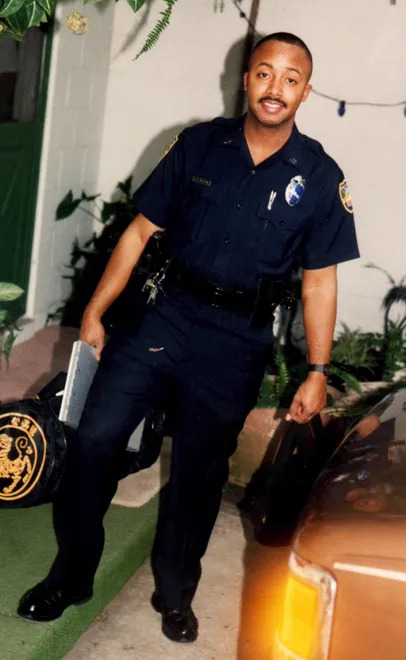
By 1998, their audacious activities were in full swing. On May 15 of that year, Aric Sinclair was on off-duty duty outside the SouthTrust bank, closely monitoring Sami Safar and his nephew Hassam Tahhan, owners of a convenience store, who regularly withdrew substantial sums of money from the bank for their business. Collaborating with two others, Sinclair devised a plan to rob them. On the chosen day, as Tahhan left the bank with around $50,000, one of the individuals brandished a gun, seized the money, and fled. Sinclair claimed $20,000 as his share. When Karl Waldon learned of the successful heist, he expressed a desire to target other affluent business owners, but Sinclair, concerned about the risk of getting caught, was reluctant to involve himself in further criminal activities.
Sinclair provided Waldon with details about Safar’s vehicle but preferred not to be further involved. On July 3, 1998, Waldon decided to pull over Safar’s car under the guise of a routine check. His two accomplices, James Swift Jr. (Waldon’s brother-in-law) and a convicted felon named Kenneth McLaughlin were tasked with approaching Safar’s vehicle, using pepper spray, taking his money, and making a swift getaway. Swift was stationed as a lookout at the bank and instructed to alert Waldon upon spotting Safar’s car. However, when Waldon stopped Safar, the latter became suspicious, as his nephew had been robbed by the police a few weeks ago. Reluctant to abandon his bag of money, Safar was persuaded by Waldon to sit in Waldon’s car with the money.
Waldon, Swift Jr., and McLaughlin, after robbing Sami Safar, faced a critical moment when Safar saw Waldon’s face and knew he would be identified. Anxious and fearing exposure, Waldon deemed Safar a threat and decided he had to be eliminated. In a heated confrontation, they moved to a parking lot where Waldon, armed with a rope, coerced Safar into his patrol car. Once inside, Waldon strangled Safar, instructing McLaughlin to finish the job. Safar’s life ended between the car seats. Panicking, Waldon drove around the city with McLaughlin and Swift following. Eventually, Safar’s body was transferred to Swift’s Maxima and later dumped in a secluded area by McLaughlin. The trio reconvened at Swift’s apartment to divide the stolen money and cover their tracks.
Where Are James Swift Jr, Aric Sinclair and James Battle served their Sentence and Karl Waldon Now?
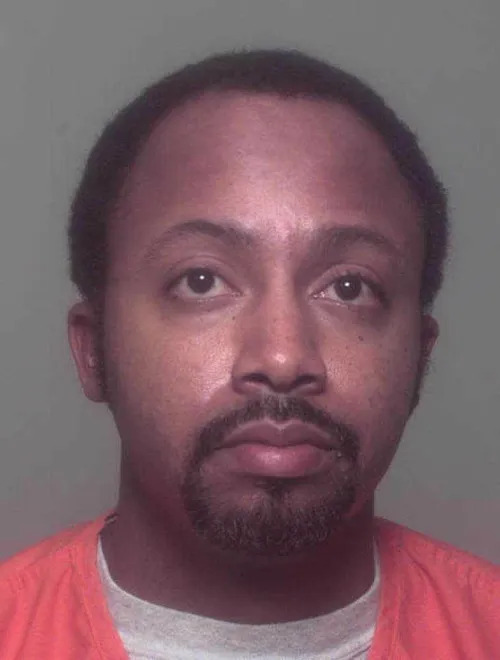
In the late 1990s, an unfolding federal investigation targeted potential corruption within the Jacksonville Sheriff’s Office, initiated by the cooperation of two drug dealers arrested in 1999. Connections to Sinclair were implicated in their revelations, leading to cooperation from an individual connected to Sinclair who recorded conversations with him. As Waldon and Sinclair discovered the federal grand jury’s focus on them, tensions rose. Waldon officially became a subject of investigation with a federal grand jury subpoena on February 15, 2000. However, during his under-oath appearance on February 16, Waldon provided false information about his interactions with Sinclair and his knowledge of the Safar incident. The situation further intensified with subsequent questioning of McLaughlin, who disclosed details about Safar’s robbery and murder. Consequently, in December 2000, Waldon, Sinclair, and Swift faced federal charges as a result of the comprehensive investigation.
In December 2002, a three-year crime spree culminated in Karl Waldon being sentenced to four life terms, including the murder of businessman Sami Safar. Waldon, now serving time in a federal prison, was also slapped with a restitution order of $58,900. Aric Sinclair, aged 34, faced the consequences of a 17-year and seven-month prison term after pleading guilty to conspiracy. Although Sinclair was anticipated to complete his sentence, there is currently no publicly available information about his status. Meanwhile, James Swift Jr. received a sentence of seven years and three months for his role. Since his release, public information about James Swift Jr.’s current status remains scarce.
James Batlle, a 21-year-old man, found himself arrested and convicted due to the actions of Sinclair and another accomplice. Despite attempting to expose the extent of corruption, his story initially fell on deaf ears, resulting in his conviction. However, as the full story unfolded, revealing the depth of the corruption, charges against Batlle were dropped. Surprisingly, he chose to serve his 14-month sentence out of frustration, having experienced the dismissal of his complaints when they were first made.
Read More: Brandi Mathews Murder: Kelly Simino is Serving His Sentence in Prison Today
SPONSORED LINKS

- Movie Explainers
- TV Explainers
- About The Cinemaholic
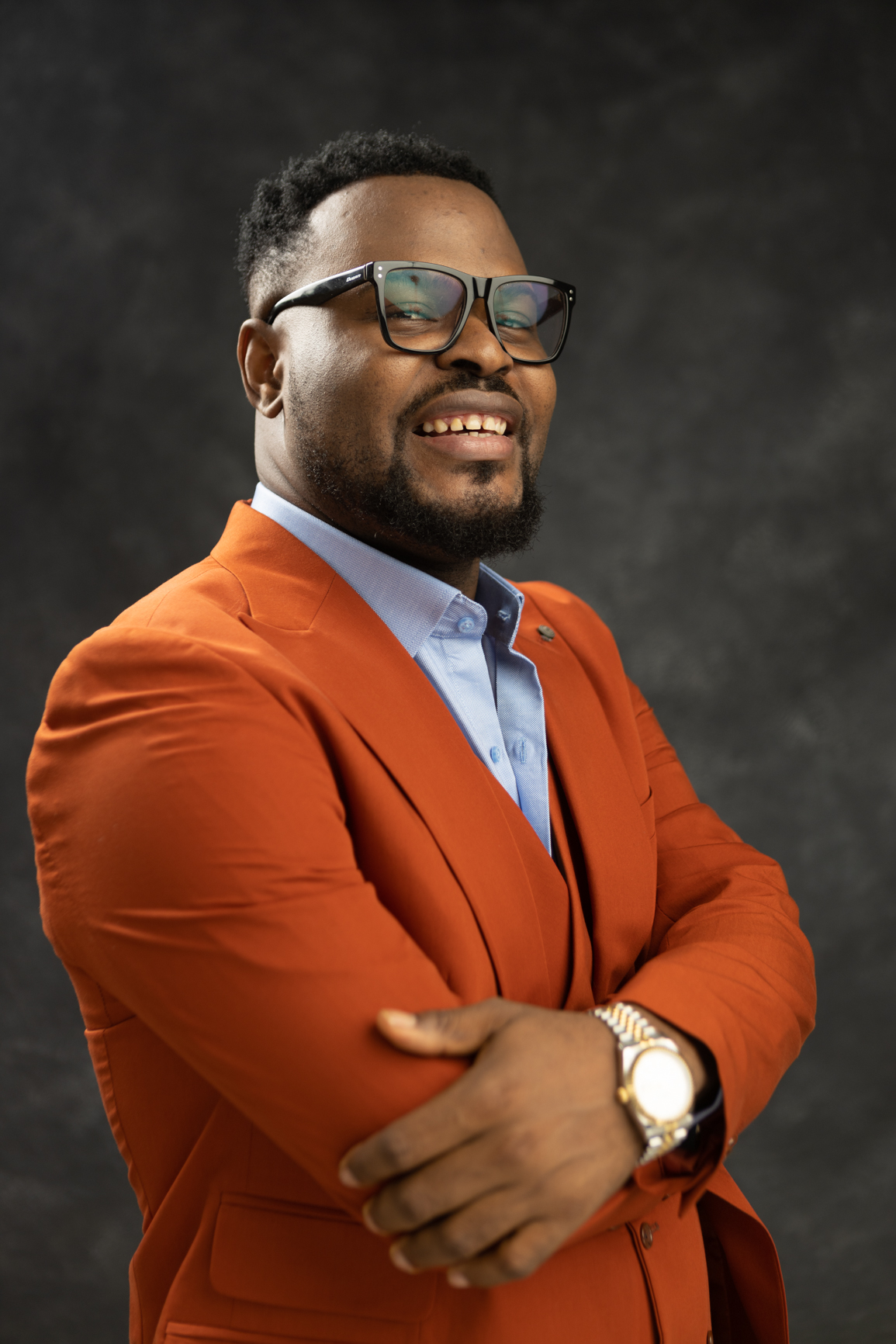
SAMHARVARD.COM
Dr. sam harvard champions knowledge sharing in business.
In a recent Instagram Live session that sent ripples through the business community, renowned business guru Dr. Sam Harvard fearlessly called out a colleague for their stance against knowledge sharing. With a fiery passion for collaboration and learning, Dr. Sam used his platform to shed light on the importance of fostering an environment of openness and shared knowledge in the professional sphere.
The incident unfolded during a candid discussion on Dr. Sam's Instagram Live session yesterday, where he passionately addressed the topic of knowledge sharing in the business world. As an advocate for collaboration and continuous learning, Dr. Sam expressed his concerns about the detrimental effects of withholding knowledge and expertise.
During the session, Dr. Sam shared personal anecdotes and insights from his own journey, emphasizing the invaluable role that knowledge sharing has played in his success. He highlighted the power of collective intelligence and the transformative impact it can have on businesses and individuals alike.
However, the conversation took a dramatic turn when Dr. Sam called out a fellow colleague, whose name remains undisclosed, for their anti-knowledge sharing stance. With unwavering conviction, Dr. Sam challenged the notion of hoarding knowledge for personal gain, stressing that true success is achieved through generosity and collaboration.
The confrontation sparked a lively debate among viewers, with many echoing Dr. Sam's sentiments and expressing their support for a culture of knowledge sharing. As the discussion unfolded, it became evident that Dr. Sam's message had struck a chord with professionals across industries, igniting a movement towards greater transparency and cooperation.
In the aftermath of the Instagram Live session, Dr. Sam's bold stance continues to reverberate throughout the business community, inspiring individuals to reevaluate their approach to knowledge sharing. With his unwavering commitment to fostering a culture of openness and collaboration, Dr. Sam serves as a beacon of hope for a brighter, more interconnected future in the business world.
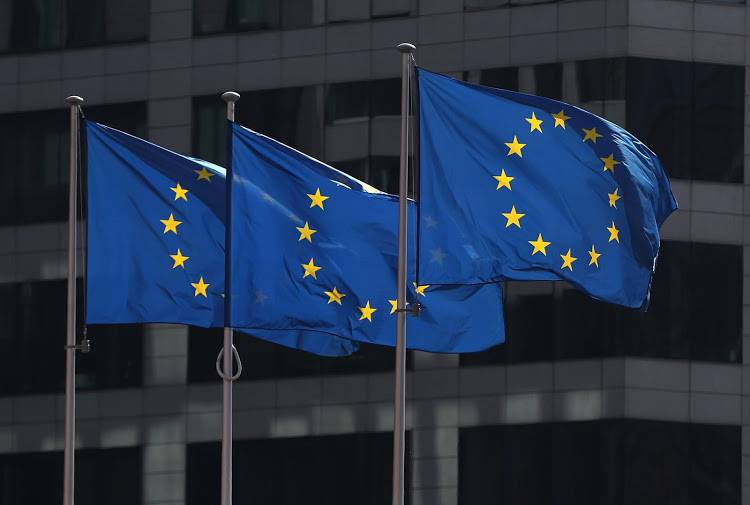
- Presidential Search
- Editor's Pick

Harvard Princes, Russian Reformers: When Harvard Ran Moscow
Instead, the economic development project crumbled in scandal.
In 2006, the US government charged Harvard, project-lead Andrei Shleifer ’82, and others involved with the project with conspiracy to defraud the U.S. government, eventually forcing them to pay a $31 million settlement.
The Moscow-based project was run under the Harvard Institute for International Development (HIID), a Harvard organization for economic and political advising abroad. The mismanagement in Russia ended with the dissolution of the project and, soon after, the demise of HIID itself.
To many within the organization, HIID offered a fresh approach to development. It worked in over a dozen countries, offering services from policy writing to training local leadership. Over the years, HIID built a record of successes that established it as a major player in international development and allowed the organization to grow exponentially. By the 1990s, HIID’s budget was bigger than many of Harvard’s graduate schools.
To its critics, however, its growth came in large part from the connections, prestige, and name brand of Harvard. HIID also periodically came under fire for working with corrupt regimes, though this never resulted in significant institutional oversight.
Moreover, some within the organization weren’t questioning the philosophy of development itself.
When the Russia scandal broke, it exposed a set of questions about how these Harvard affiliates became so integral to Russia and who benefited from their access.
To some, the very premise of the organization — using Harvard-affiliated experts to reshape the economies of hundreds of millions of people — was troublesome. Its wide reach was building an aristocracy of Harvard affiliates across the world.
In Russia, privatization efforts like those facilitated by HIID fostered the growth of the Russian oligarchy, which still shapes Russian society today.
The story of the HIID and its equivalent today, the Center for International Development, highlights the bounds of Harvard’s influence. With Harvard’s involvement in real-world events facing increasing scrutiny and many pushing for a policy of institutional neutrality , HIID reveals the risk of Harvard’s global power.
“Is there a Harvard mafia running our country?” wrote the Philippine Star , a newspaper based in Manila, the country’s capital.
The “mafia” was the significant set of Harvard affiliates sculpting Filipino policy: four Harvard-educated cabinet members, a Supreme Court justice, the director of the Central Bank, plus a slew of HIID researchers sculpting Filipino policy.
The institution’s path to the helm of the Filipino government — and so many others across the world — started in 1974, when Harvard’s Development Advisory Service was rebranded as HIID following intense protest.
For years, DAS had conducted economic projects in Pakistan, Iran, and Southeast Asia but came under fire for its support of Indonesian President Suharto’s military regime and alleged misuse of funds in Pakistan. Student activists claimed that the DAS focused on raising their client countries’ GDP and supporting anti-Communist efforts over more pressing social and political needs. Ira D. Helfand ’73, who questioned the organization’s philosophies during a 1971 debate between Students for a Democratic Society and the director of DAS, says SDS wanted to educate campus about CFIA’s activities abroad and ideally, shut the institution down.
“This was a quiet little center sitting off in a building,” he says. “But when you went into their library there and began reading through some of the studies that they were doing and some of the work that they were doing, it was really quite disturbing.”
At one point, a radical left-wing military group set off a bomb in the building that housed DAS, protesting Harvard’s involvement in Vietnam.
With the renaming of DAS to HIID came a slew of institutional changes. Rather than a purely economic approach, HIID adopted a more interdisciplinary model, with experts from a range of academic and professional backgrounds working on a much larger variety of projects. Many projects involved direct contracts with host governments and included advisors that lived and worked abroad.
Despite the rebrand, HIID didn’t escape campus criticism. Student and faculty opposition upended HIID’s director selection process, ousting first-choice pick Arnold C. Harberger for his involvement in Agosto Pinochet’s dictatorship in Chile, leaving economist Dwight Perkins to get the job.
Under Perkins’ leadership, the HIID blossomed into a major player in international development. By 1999, HIID had 20 overseas offices and 25 additional international programs, and had grown from a $3 million budget in the 1970s to a more than $30 million one — larger than the budgets of Harvard’s Design, Divinity, Dental, and Education schools. A number of senior HIID members even gained “industrial tenure,” which grants protections within the institute, but not at the University.
Commonly, the HIID provided advising services, but they also provided technical trainings to local populations, many of whom would go on to become influential government officials.
Beginning in 1988, HIID trained over 700 Indonesian officials abroad under a $10 million contract. “If you go down through the cabinets over the last 30 years, they’re going to be dominated by that group,” says Glenn P. Jenkins, an HIID fellow. “Every cabinet, no matter which government.”
Sometimes HIID’s advisors had more direct roles in governing client counties, too.
Malcolm McPherson, now a research associate for the Kennedy School’s Ash Center for Democratic Governance and Innovation, worked intimately with Gambian ministers as a resident advisor for HIID. “The ministers relied on us a lot in some ways,” McPherson says. “For example, the Minister of Finance, I used to write his budget.” McPherson was then asked to write one speech for this Minister of Finance and “one thing led to another so I ended up writing speeches,” he says.
Former HIID officials say the organization depended on endorsements from the governments they contracted with, even when their values were misaligned.
While working on a study of rural education in Honduras, Harvard Graduate School of Education professor Fernando M. Reimers was removed from the project after refusing to change his findings that children often experienced violence in schools.
“I was never invited back,” Reimers says.
Reimers mentions similar problems across other projects. “I’m sure we had to work within the boundaries of what the government allowed us to work in. We’re not there to subvert or even expose corruption,” Reimers says.
Though they were worried about complicity in corrupt governments, they did not question their right to be there. While Reimers was aware of his status as an outsider, he was more concerned with getting the work done than “navel-gazing.”
“I didn’t spend a lot of time questioning myself and maybe that was a bad thing. Maybe it was really a white savior complex,” he says. Now, “I can imagine a lot of protracted discussions on whether we should even be doing this thing at Harvard.”
Despite that, Reimers stands by the work they did, and other HIID officials defended their work as better than other development organizations.

David O. Dapice, a professor affiliated with the Ash Center who worked with both HIID and the World Bank, felt that “the pressure in the World Bank was to generate projects” that would pay for bank activities. Such a model may have influenced how the World Bank counseled countries.
“Whereas I never felt working for Harvard that I gave bad advice,” Dapice says.
Reimers also says other major development organizations had massive bureaucracies, which “can make it very easy for people to lose sight of what you’re doing. And that was not the case at HIID.”
Lacking bureaucracy, HIID instead opted for informal, “moral infrastructure” to navigate contracts — ethical guidelines rather than official ones.
Because the projects were being run in countries thousands of miles away, Perkins says, “you have to trust the leaders.”
For example, Harvard refused to require their employees to obtain security clearance before working with governments’ confidential information.
“There was a trust that we would not be inappropriate in the way we use the information that we had,” Perkins says.
According to Dennis F. Thompson, who served as the chair of the task force to review HIID, as the organization grew in size, its already loose structure became increasingly looser, as did its ties to Harvard.
When Sydney B. Rosen ’87 started working for HIID in 1996, she found “HIID kind of operated independently of the University.”
“It was never a great idea not to have a tighter tie with Harvard, and more student involvement and more faculty involvement,” she says.
To her, the disconnect between HIID and Harvard proved challenging.
“That’s just not a great model for having support when something goes wrong. And things did go wrong,” Rosen says.
‘Harvard’s Blank Check from Uncle Sam’
I n 1991, the USSR collapsed, and the new president of the Russian Federation, Boris Yeltsin, announced that Russia would continue its rapid transition to a market economy. Foreigners — from businessmen to bright-eyed economists — flooded into the newly-opened country.
“It was a very exciting time,” says Jana G. Fankhauser, an early associate for HIID’s Russia Project. “You could see foreign produce in stores, you could see the changes happening throughout the city, throughout Moscow.”
The Clinton government also wanted to play a role in Russia’s transformation — a desire that, from 1992 to 1995, would lead USAID to award HIID a $40 million contract for economic reform aid. While selecting a contractor is usually a competitive two-year process, the government granted the deal to Harvard without properly considering alternatives.
As a Government Accountability Office investigation would later reveal, this unusual contract also granted HIID a great deal of power over the distribution of USAID’s $300 million portfolio for Russian development, meaning it effectively supervised its own competitors. According to Janine R. Wedel, a professor of anthropology at George Mason University, the contract functioned as “Harvard’s blank check from Uncle Sam.”
To a certain extent, the contract reflected Harvard’s existing influence in Russia.
Two of the University’s young but celebrated economists — Shleifer and Jeffrey D. Sachs ’76 — were already well-positioned with the Russian government.
Shleifer, a Russian native and newly-tenured Harvard professor, previously worked in Russia with the World Bank. Sachs commanded prestige as the face of “shock therapy” economics: the theory that sudden, dramatic changes can turn a state-controlled economy into a free-market one. He championed shock therapy in Poland and in Russia, where he worked as an economic advisor to President Yeltsin until 1994.

The contract arrived at HIID with Shleifer already at the helm, and in 1995, Sachs took over from Perkins as the director of HIID.
In the eyes of Perkins, USAID did not want to offer a contract directly to the Russian government, who they did not trust, nor to an individual advisor. Indeed, the waivers for the expedited bidding process cited “foreign policy considerations.”
Though Shleifer was favored by the Russian ministers at the time, “USAID was not going to give Andrei the money,” he says. “It had to be turned over to an organization that knew how to handle it.”
HIID arrived in Russia with a team of about twenty resident advisors, then added a Legal Reform Project, led by lawyer Jonathan R. Hay, in 1994.
The government, with the assistance of Harvard advisors, rolled out privatization in two waves, through the 1992 voucher program and the 1995 loan-for-shares program. HIID also helped create the Russian Stock Exchange, and the Russian Trading System Index.
Similar to other HIID projects, the Russia team worked intimately with the host government. According to Wedel, Shleifer and Hay in particular enjoyed a close relationship with the government’s “Young Reformers,” including minister Anatoly Chubais.
Shleifer did not comment on his relationship with members of the Russian government.
Yet in Russia, the boundary between the government and the economists was a lot less clear.
Wedel stumbled upon the story of HIID while researching aid in Eastern Europe. She became fascinated with the “actors and networks” at play in Russia at the time, which she calls the “Harvard-Chubais players” in her book “Shadow Elite: How the World’s New Power Brokers Undermine Democracy, Government, and the Free Market. ”
“There was a very, very fine line between what was private and what was state,” Wedel says. “And you see that 29-year-old Jonathan Hay, who’s not even a Russian citizen, and Maxim Boycko, who is a Russian citizen, but not involved in any government post, have formal signature authority over privatization decisions of the Russian state. That raises questions. What’s that about?”
Hay did not respond to a request for comment.
Among some HIID associates, however, the relationship between the project’s top associates and Russia’s top officials seemed to cross the line into special treatment. Both Shleifer’s wife, Nancy Zimmerman, and Hay’s then-girlfriend, Elizabeth Hebert, worked in finance, and appeared to benefit from their partners’ positions — most notably, when Hebert’s newly-established company Pallada became the first approved mutual fund program in Russia, over larger and older competitors. Pallada operated out of HIID’s offices, and Zimmerman’s hedge fund, Farallon Fixed Income Associates, invested in Russian companies.
Hebert did not respond to a request for comment. Zimmerman could not be reached for comment.
Far from HIID’s Cambridge headquarters, and working under the expansive umbrella of the USAID contract, many of these issues failed to immediately raise alarm.
“Reality is,” says Perkins, “no one knew what was going on.”
‘Internationalism Has Blown Up in Harvard’s Face’
I n 1996, the Russia project began to unravel.
Concerned with the lack of complete and timely reports from HIID, the House International Relations Committee directed GAO to audit the program. Although GAO concluded that USAID oversight of HIID was “lax,” the 124-page report did not force any changes. The original report was much harsher, according to Wedel, but “the Harvard lawyers basically gutted it.”
Tensions, though, continued in Russia. A whistleblower led the newly-arrived USAID director in Moscow to inform the agency’s inspector general of potential favoritism towards Hebert and Pallada. A quiet investigation of the Russia project began.
Over the course of the investigation, new details would emerge about the group’s shady dealings. A $200,000 indirect investment in Russian companies by Shleifer and Zimmerman in 1994. Stock purchased in Russian oil companies by Shleifer, under the name of Zimmerman’s father. $20,000 invested by Hay into the Flemings Russian Securities Fund, an investment company managed by Hebert. Investment in Russian debt instruments, or GKOs, even though HIID worked on national financial policies.
In May 1997, USAID temporarily suspended the project, and in a letter to HIID, claimed that Shleifer and Hay “abused the trust of the United States government by using personal relationships, on occasion, for private gain.” HIID soon removed Hay and Shleifer from the project.
Shleifer did not comment on USAID’s claims.
When Russia terminated the project in June, USAID revoked a $14 million grant to HIID. The project’s abrupt end made headlines across the country, drawing attention to Harvard’s presence in Russia — and HIID’s years of dealings abroad.
“Internationalism has blown up in Harvard’s face,” wrote The Boston Globe in 1998. “Critics say Harvard faculty members have become too cozy with oppressive regimes such as China and Burma, and too easily corrupted in graft-filled societies like Russia.”
Many at HIID, however, emphasize that the Russia project was a radical departure from their typical initiatives.
For one thing, the project came with Shleifer already at the head, rather than someone with experience working at the Institute.
Reimers also points to Sachs, who took over the directorship of HIID during the Russia years without much prior involvement in the institute. According to him, “Sachs was very young at the time, and very arrogant, if I can say that.” His focus on macroeconomics research excluded a few of HIID’s other initiatives, leaving some people feeling alienated.
Many saw HIID personnel bring up a long-standing rivalry between Sachs and Shleifer, which they claim may have exacerbated the effects of the scandal.
In an email, Sachs defends his leadership at HIID, denying that he was underqualified, arrogant, or had a rivalry with Shleifer. Shleifer did not comment on claims of a rivalry.
“I’m not clear that if it had been handled differently it would have led to a different result,” Perkins says. “But it became a legal process much faster than it needed to be.”
In 1998, Harvard created the Center for International Development, a more research-oriented organization. Sachs assumed the directorship of CID, and $10 million from HIID’s endowment went to finance CID.
A year into the transition, however, Sachs resigned as HIID’s director, and in 2002, he left Harvard to join Columbia University.
According to Rosen, “we just were in a spiral that was on its way down” after Perkins retired and Sachs joined the institute. “And one bad thing happened after another until there was nothing really left to save.”
Following Sachs’ resignation, the University announced a task force to review HIID and evaluate its future.
Thompson, the task force chair, still holds today that the Russia scandal was not the main reason for the review. They didn’t think the Russia dispute was “typical,” Thompson says. “In fact, we thought it was an aberration.”
He cites other reasons for the review — a need for a new director, HIID’s size, and the increasing interest in integrating international development efforts into other graduate schools.
For those working at HIID, however, the Russian scandal loomed large over the process. University administrators were worried about the legal liability associated with HIID, says Perkins, who sat on the task force. “Technically it was not connected to the Russian thing, but in reality it was.”
Without a way to remove the risks, Perkins believes, there was no way to move forward with the Institute. The task force toyed with the idea of removing the H from HIID’s name, and having “IID” operate similar to a teaching hospital, with a loose relationship to Harvard. But for Perkins this model was “totally unworkable.”
The task force recommended that HIID dissolve, citing structural issues, a deficit in 1998 and 1999, and the Institute’s insufficient integration into the University’s research and educational goals. In 2000, HIID officially dissolved.
Its staff of over 180 people spent the following months trying to relocate their projects and careers. While Harvard graduate schools absorbed some projects, others relocated. The public finance group largely transferred to Duke. The Vietnam Project became part of the Kennedy School. The public health team moved to Boston University.
“A few people had been offered positions at Harvard School of Public Health, the senior people,” says Rosen, a public health associate at the time. “But for people like me, there was really no future at Harvard. And they were mad. I mean, there was also just a sense of betrayal.”
“It was a really heavy price that the Institute paid,” says Richard B. Pagett, who served as the associate director of HIID in 1997. “And I have never understood the rationale in Harvard’s mind, why it was done that way.”
To McPherson, the decision to dissolve the Institute was “Harvard at its worst.”
“You know, they never fire a Harvard prince,” says McPherson, who relocated to the Belfer Center and now works at the Ash Center. “It’s the story. Doesn’t matter what they do.”
Shleifer retained his position as a tenured member of the Economics department — even when the Justice Department officially accused Shleifer and Hay of making personal investments in Russia in late 2000. The trial went on for the next five years, during which Summers assumed Harvard’s presidency.
During the trial, multiple Harvard faculty members raised concern about the lack of disciplinary action against Shleifer. Summers legally recused himself from the case, though he also at one point expressed an intent to keep Shleifer from accepting a job at another university. Shleifer also asked Harvard to cover his legal fees.
In his defense, Shleifer claimed he acted as a consultant to HIID rather than an employee — and therefore did not breach the contract’s conflict of interest rules. He also described the investigation as “zealous” and “outrageous” in a letter to the provost.
In 2005, a settlement was reached: Harvard would pay the US Government $26.5 million for their involvement in the Russian development scandal, while Shleifer and Hay would pay over $1 million each.

Still, Shleifer remained at Harvard, and suffered from no disciplinary action (Shleifer did not comment on the case). The saga added another controversy to Summers’ presidency. In early 2006, someone anonymously sent copies of “How Harvard Lost Russia,” a meticulous account of the Russia scandal by David W. McClintick ’62, to senior faculty. Summers resigned from the presidency soon after, with some faculty members citing the affair as a blow to Summers’ reputation.
Summers did not comment on the case, his relationship with Shleifer, or claims that it hurt his reputation.
“I always thought it was wrong,” Pagett says. “That HIID wound up being dissolved and its component parts being put under the various faculties when the scandal which led to all the problems was done by a tenured member of the economics department faculty who suffered not one iota from it.”
‘Privatization, Privatization, Privatization’
T he attention-grabbing details of the Russia scandal can sometimes obscure the lived impact of the project’s privatization efforts. The signature reforms of the Yeltsin government — voucher privatization and loan-for-shares programs — are now largely regarded as the origins of Russia’s oligarchy.
“I got the voucher,” recalls Irina Busygina, a visiting scholar at the Davis Center. “For me it did nothing, absolutely nothing. You know, because to have one voucher check on the individual level is absolutely nothing.”
“It was like a sheet of paper,” she adds.
Future oligarchs bought up hundreds of thousands of vouchers from ordinary Russians and used them to buy stocks in recently privatized enterprises. In a short time, a small number of individuals gained a shocking amount of wealth — and, by extension, political power.
The loan-for-shares program was a more explicit sell-out to the oligarchic class. In rigged auctions, the Russian government sold shares of valuable state enterprises to oligarchs in exchange for billions of dollars. When the government eventually defaulted on those loans, the oligarchs retained control of the country’s most important and profitable corporations. Though the scheme provoked outrage among the Russian people, particularly against Chubais, it ensured the oligarchy’s support for Yeltsin’s 1996 election campaign — without whom, Busygina says, Yeltsin “could not survive.” Sputnik, an investment firm partially owned by Harvard Management Company, participated in some of these auctions and purchased shares in Russian oil and steel companies.
Though HIID was involved with the voucher program and other privatization reforms, Perkins maintains that HIID was not responsible for the Russian government’s “deals made with those oligarchs.”
“There was never anything actually wrong with the project itself,” he says. “The issue was the private investment activities.”
Like Perkins, Fankhauser, the HIID associate on the Russia project, believes in the project’s goals, but does not see HIID and other Western advisors as entirely blameless.
“We were excited about markets being established,” she says. “We were less than thrilled about watching advantage being taken of Russian citizens.”
Looking back on it now, she thinks “we were somewhat naive about how long it would take to create change that would be long term. And probably also somewhat naive about corruption.”
But some don’t think they were just being naive. The reforms reflected the ideas of shock therapy, championed by economists like Sachs.
The young reformers of the Russian government, Busygina says, “opted for the most radical solution.” When choosing such drastic measures, “their main argument was, ‘we don’t want to restore communism… if we do something moderate, something more time consuming, step by step by small step, we will get lost.’”
The US government and aid agencies also pushed for privatization. Economic reform in Russia, according to Wedel, was “seen as the most important issue by the West.” She remembers asking someone working on Russian development about priorities. “She said, our priorities are privatization, privatization, privatization,” Wedel says. “That was the ideology of the day.”
As the country plunged into a financial crisis in 1998, Yeltsin’s government became increasingly unpopular, and he resigned a year later. Vladimir Putin, his favored successor, spent his first years as president campaigning against the oligarchy and building a populist base.
“The privatization, and the severe feeling of unfairness of the privatization, gave Putin the argumentation to build his own system,” says Busygina.
‘The Tip of the Iceberg’
L ike McPherson, many past HIID associates reject the idea that HIID’s 25 years of work should be “defined by this Russian business.”
Even though HIID personnel argue for a more comprehensive view of its legacy — one that takes the years before the Russia Project into account — the scandal provoked greater scrutiny of the Institute, and of Harvard itself. “Recently, Harvard, with all of us who live, work and study here, has been tainted,” wrote Emma S. Mackinnon ’05 in a 2002 op-ed in The Crimson. “And these cases may well just be the tip of the iceberg — visible only when the company connected to Harvard attracts public attention.”
“Before running aground of another corporate scandal, the University needs to be rapidly redirected away from the peril of corporate and personal interests and towards the interests of the Harvard community and the public — here or in Russia — that the school should be serving,” she wrote.
Today, Harvard’s international influence is perhaps less consolidated in one institute (though it’s no less contentious ).
While CID is not technically HIID’s offshoot, its continuation of the Institute’s legacy prompted a 2000 op-ed in The Crimson to question if CID is just HIID, renamed to avoid scrutiny.
According to Harvard spokesperson Jason A. Newton, CID was set up as a distinct entity, rather than as an extension of HIID. “CID does not currently have any ties to, nor any ongoing projects formed under, HIID,” Newton writes in an email.
Past associates don’t deny the connection between CID and HIID, but they see CID as less of a continuation and more as a shadow of the former institute.
Perkins believes that much of CID’s reputation comes from HIID’s past projects. CID also conducts work in countries where HIID built long-standing relationships, such as Indonesia.
Some even seem to wish that Harvard still had a division as powerful as HIID. “I think about the challenges of the present, that Harvard and other elite universities face, where so many people ask, what do you do for society? Are you just a bunch of self-serving individuals, bloated bureaucracies, that have zero value?” Reimers says. “We could give different answers to those critics if we actually had a place like HIID. We could say, this is what we do for the world.”
Yet at the same time, Reimers recognizes that the landscape for university involvement in international development has changed.
USAID, he says, is now more focused on offering aid to local institutions. From an administrator’s point of view, he explains, “they would rather spend the money they were giving to HIID to an institution in El Salvador.” This shift may be a result of today’s widespread skepticism of foreign-led international development efforts.
While HIID emphasized its interdisciplinary approach, Reimers also believes that academic disciplines today are “certain that their perspective in the world is the perspective.” Competition in the international development world, he adds, is now more fierce.
Jenkins, the HIID fellow, agrees. “The international consulting firms in the United States have gotten a lot better,” he says. At the time of HIID’s existence, “Harvard sort of had a niche.”
“You know, let’s say that Dwight had stayed on forever as director. I think that there might have come a time when HIID’s functions were no longer necessary,” Rosen says. “Funding structures have changed, universities have changed, the world’s changed.”
Despite researching and writing extensively on HIID and its Russia fiasco, Wedel is sure that she has only begun to connect the dots. “What I think we know is the tip of the iceberg. There are just too many puzzles, specifically on the financial front, that never worked,” she says. “It’s a very complicated story — and that’s one of the ways they got away with it.”
By the time the U.S. suit reached Shleifer in 2000, his allies were starting to assume top positions at Harvard. Zimmerman, Shleifer’s wife, worked for Bob Rubin, who would become a member of the Harvard Corporation less than two years later. Summers, meanwhile, spent time with Shleifer during vacations to Cape Cod. At one point while Summers was interviewing for the Harvard presidency in 2000, he stayed at Shleifer’s home.
“They had it all sewn up,” Wedel says.
— Magazine writer Maeve T. Brennan can be reached at [email protected] .
— Staff writer Charlotte P. Ritz-Jack can be reached at [email protected] . Follow her on X @charrittzjack .
Wednesday, April 2, 2014
Sam's butcher shop.

No comments:
Post a Comment
SEARCH PHILLYPHOODIE.COM
Philly phoodie tees (sold out).
- VIEW A LIST OF ALL REVIEWS
Want to get in touch?
Review archive through 2008.
- ► October (1)
- ► August (1)
- ► July (2)
- ► June (2)
- ► May (2)
- ► April (4)
- ► March (2)
- ► February (4)
- ► January (3)
- ► December (2)
- ► November (3)
- ► October (4)
- ► September (4)
- ► August (4)
- ► July (3)
- ► June (4)
- ► May (4)
- ► April (3)
- ► March (6)
- ► January (4)
- ► December (4)
- ► November (4)
- ► September (5)
- ► June (3)
- ► May (3)
- ► March (4)
- ► February (3)
- ► December (5)
- ► September (3)
- ► August (5)
- ► July (4)
- Clank's Bar and Pizza
- Xi'an Famous Foods
- Sam's Butcher Shop | MEATSRAVAGANZA GIVEAWAY! *CON...
- Sam's Butcher Shop
- ► February (5)
- ► December (3)
- ► November (6)
- ► October (6)
- ► August (6)
- ► July (6)
- ► June (6)
- ► May (6)
- ► April (7)
- ► March (7)
- ► February (9)
- ► January (7)
- ► November (9)
- ► October (10)
- ► September (7)
- ► August (8)
- ► July (10)
- ► June (9)
- ► May (10)
- ► April (9)
- ► March (8)
- ► January (9)
- ► December (7)
- ► October (9)
- ► September (10)
- ► July (11)
- ► June (10)
- ► May (8)
- ► April (11)
- ► March (11)
- ► February (10)
- ► January (14)
- ► December (8)
- ► November (12)
- ► October (12)
- ► September (11)
- ► August (13)
- ► July (12)
- ► June (15)
- ► May (12)
- ► April (17)
- ► March (18)
- ► February (17)
- ► January (8)
- ► December (6)
- ► November (5)
- ► September (8)
- ► August (15)
- ► July (9)
RECENT NOTABLE REVIEWS
- FAMOUS FOURTH STREET
- SHAKE SHACK
- DONKEY'S PLACE
- JACK'S PLACE
- FRANCO'S PIZZA
Original Art by Hawk Krall
Kent Lindsey, 1953-2015: Former 'Safari Sam' host battled cancer with 'grace and gratitude'

Kent Lindsey, a musician, actor and producer who spent 14 years as host of the children's television program "Safari Sam," died Wednesday after a three-year battle with cancer. He was 61.
"He went through it with an incredible amount of grace and gratitude," said his wife, Pepper Lindsey, who was also his partner in the Emmy-winning production company Lindsey Films. "He was a remarkable man with a great love for life. He was always smiling, always laughing. He felt his disease was a gift. Which is weird but not weird for him. He felt it brought people he loved together."
One of those people was singer/songwriter Mike Shackleford, with whom Lindsey spent a decade performing in the rock group Justin. In 1985, Lindsey left Justin to host "Safari Sam, " which ran from 1985-98 on WAWS TV-30.
They hadn't had a falling out but they gradually spent less and less time together. When Shackleford learned about Lindsey's illness, he decided he wanted to spend as much time with Lindsey as possible. He was with Lindsey when he died while under hospice care.
"He had a passion for everything," Shackleford said. "He lived without a safety net."
Need a break? Play the USA TODAY Daily Crossword Puzzle.
"It's amazing how many people he touched," said Mike Tolbert, a long-time friend. "To watch him suffer has been so sad. But to watch him fight has been inspiring."
Lindsey was diagnosed with lung cancer on Jan. 19, 2012. With typical humor, he named the three-centimeter tumor in his right lung "Lumpy" and set out to beat it. For a while it looked like he might. His cancer twice went into remission, but came back each time, first in his brain, then in his spine.
Last summer, he began planning his own memorial service, a celebration of life, which he wanted to be a joyous event. He said he didn't want it to be mournful and he didn't want anybody dressed in black.
"I want it to be happy, " he told the Times-Union last July. "It's a gift you give to your family."
But, even as he prepared for the worst, he remained stubbornly optimistic.
"I'm not on an expiration date," he said.
Lindsey had a place on his porch where he liked to sit and think. He called it his Gratitude Cafe. Now about 30 friends, including Shackleford and Tolbert, are organizing fund-raising efforts on behalf of Pepper and Samantha Lindsey, their daughter. While Lindsey had good health insurance, "the cost of care has taken a tremendous toll on the family's finances," Tolbert said.
Part of the fund-raising effort will be a gala, "A Musical Evening at the Gratitude Cafe." It will take place from 6-9 p.m. Thursday, May 14, at WJCT's Studios, 100 Festival Park Ave. Tickets will be $75, with a $30 charge for a wristband that covers all food and drink. For information go to www.gratitudecafe.org/.
There will be no funeral. No date has been set for the celebration of life that Lindsey planned but it will take place, Pepper Lindsey said.
In addition to his wife and daughter, Lindsey is survived by a brother, Jeff Lindsey, of El Paso, Texas.
Charlie Patton: (904) 359-4413
- Share full article
For more audio journalism and storytelling, download New York Times Audio , a new iOS app available for news subscribers.

- July 5, 2024 • 26:50 How Bad Is Drinking for You, Really?
- July 4, 2024 • 26:12 Biden’s Slipping Support
- July 3, 2024 • 32:01 The American Journalist on Trial in Russia
- July 2, 2024 • 27:55 Trump Wins Broad Immunity
- July 1, 2024 • 33:39 Will Biden Withdraw?
- June 28, 2024 • 36:42 A Brutal Debate for Biden
- June 27, 2024 • 27:49 The Doping Scandal Rocking the Upcoming Olympics
- June 26, 2024 • 23:27 France’s Far Right at the Gates of Power
- June 25, 2024 • 31:26 The Plan to Defeat Critics of Israel in Congress
- June 24, 2024 • 28:44 The Army of Poets and Students Fighting a Forgotten War
- June 21, 2024 • 33:22 America’s Top Doctor on Why He Wants Warning Labels on Social Media
- June 20, 2024 • 30:15 The Mysterious Gun Study That’s Advancing Gun Rights
The American Journalist on Trial in Russia
Evan gershkovich, a wall street journal reporter, has been accused of espionage. the newspaper and u.s. officials have rejected the claims..
Hosted by Katrin Bennhold
Featuring Anton Troianovski
Produced by Luke Vander Ploeg and Alex Stern
With Sydney Harper
Edited by Lexie Diao , Brendan Klinkenberg and Paige Cowett
Original music by Dan Powell , Marion Lozano and Elisheba Ittoop
Engineered by Chris Wood
Listen and follow The Daily Apple Podcasts | Spotify | Amazon Music | YouTube
Evan Gershkovich, an American journalist for The Wall Street Journal, was detained in Russia more than a year ago. He has been locked up in a high-security prison and accused of spying for the U.S. government.
His trial, held in secret, is now underway.
Anton Troianovski, the Moscow bureau chief for The New York Times, discusses the complicated geopolitics behind Mr. Gershkovich’s detention and the efforts to get him home.
On today’s episode

Anton Troianovski , the Moscow bureau chief for The New York Times.

Background reading
Russia opened its secret trial of Mr. Gershkovich, who is accused of espionage .
A United Nations panel said he was being punished for his reporting on the war in Ukraine.
There are a lot of ways to listen to The Daily. Here’s how.
We aim to make transcripts available the next workday after an episode’s publication. You can find them at the top of the page.
Special thanks to Milana Mazaeva .
The Daily is made by Rachel Quester, Lynsea Garrison, Clare Toeniskoetter, Paige Cowett, Michael Simon Johnson, Brad Fisher, Chris Wood, Jessica Cheung, Stella Tan, Alexandra Leigh Young, Lisa Chow, Eric Krupke, Marc Georges, Luke Vander Ploeg, M.J. Davis Lin, Dan Powell, Sydney Harper, Mike Benoist, Liz O. Baylen, Asthaa Chaturvedi, Rachelle Bonja, Diana Nguyen, Marion Lozano, Corey Schreppel, Rob Szypko, Elisheba Ittoop, Mooj Zadie, Patricia Willens, Rowan Niemisto, Jody Becker, Rikki Novetsky, John Ketchum, Nina Feldman, Will Reid, Carlos Prieto, Ben Calhoun, Susan Lee, Lexie Diao, Mary Wilson, Alex Stern, Sophia Lanman, Shannon Lin, Diane Wong, Devon Taylor, Alyssa Moxley, Summer Thomad, Olivia Natt, Daniel Ramirez and Brendan Klinkenberg.
Our theme music is by Jim Brunberg and Ben Landsverk of Wonderly. Special thanks to Sam Dolnick, Paula Szuchman, Lisa Tobin, Larissa Anderson, Julia Simon, Sofia Milan, Mahima Chablani, Elizabeth Davis-Moorer, Jeffrey Miranda, Maddy Masiello, Isabella Anderson, Nina Lassam and Nick Pitman.
Katrin Bennhold is the Berlin bureau chief. A former Nieman fellow at Harvard University, she previously reported from London and Paris, covering a range of topics from the rise of populism to gender. More about Katrin Bennhold
Anton Troianovski is the Moscow bureau chief for The Times. He writes about Russia, Eastern Europe, the Caucasus and Central Asia. More about Anton Troianovski
Advertisement

IMAGES
COMMENTS
SAM SAFARI Harvard Law School 2024 RACHEL STONE USC Gould School of Law 2024. 2023 SUMMER ASSOCIATES CHICAGO SARAH HINTZEN University of Michigan Law School 2024 ... Harvard Law School 2025. 2023 SUMMER ASSOCIATES NEW YORK KRISTINE BAFFO Rutgers School of Law - Newark 2024 JACK BILBROUGH St.Johns University School of Law 2024
Sam Spurrell. Co-Vice President of Sports Symposium. Sam is a third-year student at Harvard Law School from Cranston, RI. Sam graduated from Amherst College, where he was a member of the Swim and Dive team. While at Amherst, Sam was a two-time Division III NCAA All-American in the 200 yard butterfly.
Welcome to samharvard.com, we are here to help you build wealth by growing your business and personal finance.
Sam Safari works at Harvard University, which is a Colleges & Universities company with an estimated 19,000 employees. Sam is currently based in Un ited States. Found email listings include: @jd24.law.harvard.edu.
View Sam Safari's business profile as J.D. Candidate at Harvard Law School. Get Sam Safari's email: sa****[email protected], phone: (413) ***-*256, and more
Gary King, Director, Institute for Quantitative Social Science and Albert J Weatherhead III University Professor, Department of Government, Harvard University (teaching & professional) John Morgan , Professor Emeritus of Mathematics, Columbia University ; Founding Director, Simons Center for Geometry and Physics, Stony Brook University
J.D. Candidate @ Harvard Law School | Faculty @ Boston... 630 Followers, 274 Following, 69 Posts - See Instagram photos and videos from sam safari (@samxsafari)... Sam is a third-year student at Harvard Law School from Cranston, RI.
-- · Experience: Worked in foxes in Africa · Location: Iringa · 67 connections on LinkedIn. View Sam Safari's profile on LinkedIn, a professional community of 1 billion members.
Harvard Law School Recording Artists Project. Pro Bono Legal Assistance in the Music Industry. [email protected]. Home. Members Only. More. Student Practice Organization @ Harvard Law School ... Sam Koolaq. Clinical Instructor Director, Entertainment Law Clinic and RAP . Brian Price. Clinical Professor of Law
Whether it is a driving safari, walking safari, night safari or in a hot air balloon: every time it's different and unique experience. ... Sam Safaris & Tours takes you to undiscovered gems such as Ruaha National Park, Kitulo National Park and Selous Game Reserve, but also to the more established places such as Serengeti National Park ...
Harvard and Shleifer's defense had been curtly rejected by both a judge and a jury. Both were found to have committed fraud. The dismal end of "the so-called Harvard Boys," as Gilman ...
Mario Schlosser, HBS MBA 2007, Co-founder & President Oscar Health. "Sam Lessin will bring in new ideas and pespectives as a member of the Board of Overseers. With experience as a hi-tech entrepreneur and a critical eye, Lessin will facilitate the formulation of better and sounder university policies."
In December 2002, a three-year crime spree culminated in Karl Waldon being sentenced to four life terms, including the murder of businessman Sami Safar. Waldon, now serving time in a federal prison, was also slapped with a restitution order of $58,900. Aric Sinclair, aged 34, faced the consequences of a 17-year and seven-month prison term after ...
Welcome to Sam Harvard TV here, you'll get all the information and insights needed to grow your business and life 10x in the shortest possible time. My name is Sam Harvard, I Am Africa's Most ...
In a recent Instagram Live session that sent ripples through the business community, renowned business guru Dr. Sam Harvard fearlessly called out a colleague for their stance against knowledge sharing. With a fiery passion for collaboration and learning, Dr. Sam used his platform to shed light on the importance of fostering an environment of ...
By Maeve T. Brennan and Charlotte P. Ritz-Jack, Crimson Staff WritersMarch 30, 2024. By Xinyi (Christine) Zhang. I n 1992, a group of Harvard-affiliated experts arrived in Moscow and attempted to ...
Sam's Butcher Shop. 322 N. Main Street. Moscow, PA 18444. (570) 842-7392. Website. Back in the cold and lonely days of March 2014, I received a warm and fuzzy email from a fellow by the name of "Sam The Butcher". His message was riddled with words like "smoked sausages, kielbasa, andouille, two types of bacon, pork shoulder, porchetta, pulled ...
Xfund, HBS, and SEAS are proud to welcome The 2024 Xfund Experiment Cup recipient Sam Altman, CEO and co-founder of Open AI, in conversation with his first investor Xfund's Patrick Chung. The Experiment Cup is awarded by Xfund to extraordinary founders from the world's best universities. Learn more about Xfund at www.xfund.com. Co-hosted by Harvard Business School's Institute for ...
Kent Lindsey, a musician, actor and producer who spent 14 years as host of the children's television program "Safari Sam," died Wednesday after a three-year battle with cancer. He was 61. "He went …
Sam Potolicchio (/pɒtɒˈlɪkɪɒ/) is a professor specializing in government, leadership and political communications.He serves as Director of Global and Custom Education at Georgetown University's McCourt School of Public Policy Executive Education program and Distinguished Professor and Department Chair of Political Communications at the Russian Presidential Academy of National Economy and ...
1,781 Followers, 23 Following, 166 Posts - Dr Sam Havard (backup account) founder (@sam_halvard) on Instagram: ... Attend the Business and Finance Prophetic Night for 2024 30th December 2023, 8pm GMT+1 Live on YouTube (search for Sam Harvard TV) Don't miss this great opportunity. Promo will last only for the Christmas period . Comment PROMO ...
Katrin Bennhold is the Berlin bureau chief. A former Nieman fellow at Harvard University, she previously reported from London and Paris, covering a range of topics from the rise of populism to gender.